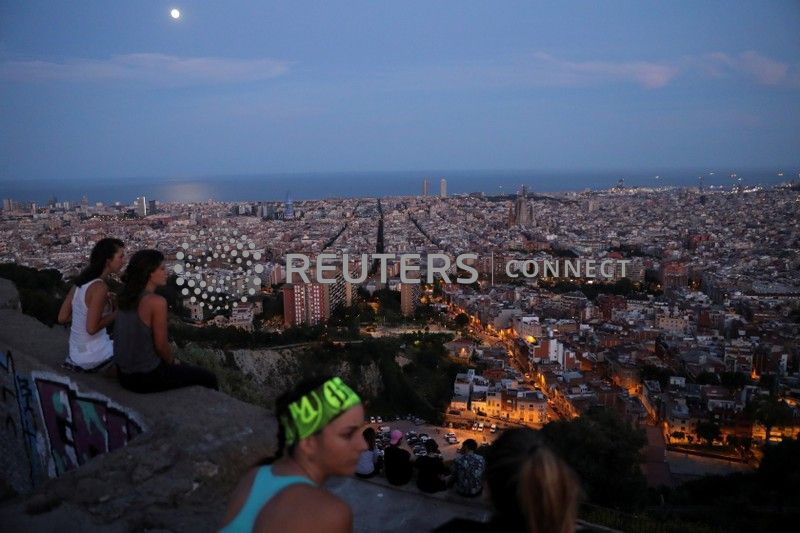BRUSSELS (Reuters) – Many European citizens are exposed to harmful and sometimes illegal levels of pollution despite progress to improve air quality in recent years, the European Environment Agency said in a report on Monday.
Air pollution poses the biggest environmental health risk in the European Union, where in 2018 about 379,000 premature deaths were linked to exposure to particulate matter, 54,000 to nitrogen dioxide (NO2) and 19,000 to ground-level ozone.
The EEA report said EU air quality improved in the 10 years to 2018, when premature deaths associated with particulate matter and NO2 were respectively 13% and 54% lower than in 2009.
“In most cases, people are indeed living in air quality that is much improved, and that meets the standards of the EU,” said EEA Executive Director Hans Bruyninckx.
Still, most EU citizens in urban areas are exposed to levels of some pollutants that exceed stricter World Health Organization (WHO) guidelines.
For example, 74% of the EU’s urban population is exposed to particulate matter levels exceeding WHO standards, against 4% above EU limits.
The EEA said policies have helped improve air quality by cleaning up power plants and industry – which emit particulate matter and NO2. Policies such as low-emissions zones in cities had addressed road transport, the biggest source of NO2.
The agriculture sector, which emits ammonia from fertilisers and livestock manure, has been slower to cut pollution.
The EU has already launched legal action against 18 countries for breaching air quality laws and last month took France to court for flouting its rules for more than a decade.
The EEA analysis confirmed that Europe’s air pollution plummeted in April 2020, notably in Italy and Spain, as lockdowns to contain the COVID-19 pandemic curbed polluting economic activity and slashed transport use.




